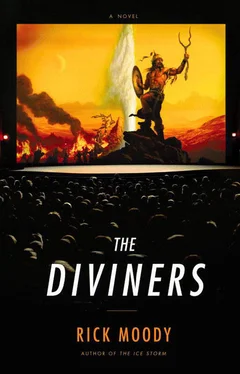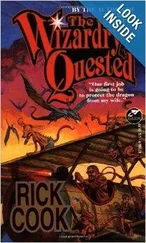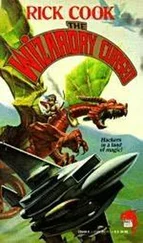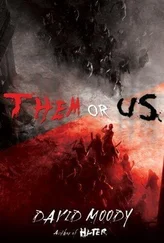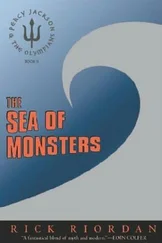The distinguished jurist rises up from his desk, holding, in his hand, the cloudy glass of vin ordinaire. He rises up, an imposing presence, a man whom others fear, a man who creates the truth, uncovers it, wherever he goes and who brooks no dissent, a flagellum Dei, and he begins, “Special friend. Now is the moment that we brook no irresolution. Now is the moment when we tolerate no weakness. Now is the moment when we withstand no hesitation. You come asking for certainty, and I say, special friend, that you should look into your own innermost heart, the sanctum sanctorum of your most fervid wishes. You should look into your heart, special friend, for any vestige of weakness that you find there, and you should take in hand this weakness and squeeze the very life out of it. As if weakness were a rodent that wandered into your bedroom. Weakness has no business in the future that begins today, friend. Weakness is a relic of a past. What remains for the weak are the courts of Europe. What remains for the weak are the commissions and the tribunals of a continent without belief and stamina. Human rights are for slaves. A man should die before he allows himself to be a slave, and if he is not dead yet, he ought to rise up to kill his master, today. Weakness and irresolution are for women and little children. And the people who can be crushed should be crushed, because that is the order of things, that is nature, and nature is what God made, and what God made is power. Yes, special friend, that’s what we put in the place of weakness. Power comes only from divine law, and what divine law says is that power is just. You may recall the King James Bible,” and here the distinguished jurist quotes from memory, “‘ Wilt thou then not be afraid of the power? do that which is good. ’ And so I remind you, tomorrow, not to hesitate. For what is the good, special chum, but the decision on which power settles itself? The states know this, the states know that they can draft the law in their borders and that all will be well within the borders of these states, and they will not be subject to reversal from a disenfranchised elite from a corrupt law school somewhere. This is not what power is. Power is the people in the moment of attempting to divine God’s justice, wrestling with God’s justice, knowing that the state is God’s scourge here on earth, and if the state says that a man should die for what he has done, then a man must die. If the state says a woman’s fetus must live, then the woman’s fetus must live, and so what is the lesson of obedience? The lesson is that God controls all things, and you have no recourse, and so you obey, that you may have everlasting life, special friend. The lesson of obedience is that there is no other path to travel, for every other path of life ends in madness or death. Every other way but the way of obedience is death, E quali agevolezze o quali avanzi ne la fronte de li altri si mostraro per che dovessi lor passeggiare anzi? What are seductions of the world that they are more alluring than what obedience can do for you, special friend? Power is the sign that a supernatural authority has visited a place. If power is given to you, then power is yours to exercise, and, more than an option or a choice, it is your duty to exercise this power. Life is the unremitting exercise of power, and if power is the ability to fire a dullard who is no longer performing his appointed job, then you must fire that dullard and you must have him escorted from the premises under armed guard, and you must seize his personal computer, and you must copy all of his files before he erases them. And if power is the ability to have a camera in the office of his successor, so that you can make sure that the successor does what you want him to do all the day long, then you must exercise this power and you must shrink from irresolution; you must delight in power, in the exercise thereof. Power is given to some men to prove that God’s reign is just, and those who seek to preserve the tradition of the law will not whimper in the face of responsibility. So if you come to me, special friend, asking what’s going to happen tomorrow, I can’t tell you what’s going to happen tomorrow, but I can tell you how to live, and that is to live the way we lived when we were young, special friend. How did we live? We proceeded as if the world were ours. We loved our parents and neighbors, but we couldn’t help them. Special friend, we have come to places like this temple of jurisprudence, and are we now going to be faint of heart? No, special friend, we are not. We are the linebackers on the front line of the divine, and we spike the quarterback of the opposition, and we do not worry about breaking his neck. Compassion is faintness of heart; compassion is a lie told by people who are afraid to rule. What will the meek inherit? Social Security benefits that will not last another twenty years.”
The distinguished jurist, having drained his goblet, looks to the special chum, who holds aloft the bottle. In the middle of the room they meet, and each glass is refilled. The special chum looks as if he has just witnessed a faith healing, or perhaps this is how the distinguished jurist perceives it, that the jurist has healed. No matter if the people do not understand, because they will understand one day.
“Squash Maiser like a bug,” the distinguished jurist says. And then: “Let me walk you out.”
In the corridors of power, two old friends. The report of their heels the only sound of their progress, a progress that with each pace brings closer the end of a long day’s labors. When they have come near to the back entrance to the Supreme Court of the United States, the distinguished jurist asks what has been on his mind for most of an hour: “Naz, you know, I have half a mind to try a screenplay myself. Something with patriotic themes. Perhaps one day. What do you think?”
“I think it’s a brilliant idea.”
“How do you end a story about God and country, though? That’s potentially a problem.”
“That’s easy. A story about God and country ends the way all good stories end.”
Availing himself of a theatrical pause, the special chum goes through the doors to where the limousine waits for him in the distance. Then the special chum’s voice sings out as he disappears into the night: “All good stories end with a fireball in the sky.”
Rick Moody is the author of the novels Garden State, which won the Pushcart Press Editors’ Book Award, The Ice Storm, and Purple America; two collections of stories, The Ring of Brightest Angels Around Heaven and Demonology; and a memoir, The Black Veil, winner of the PEN / Martha Albrand Award. He has also received the Addison Metcalf Award, the Paris Review’ s Aga Khan Prize, and a Guggenheim Fellowship. He lives in Brooklyn, New York.
